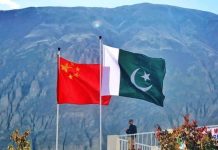BEIJING: China’s new round of financial reform is expected to focus on improving the financial system’s ability to better support the country’s modernization drive, with a priority on bolstering technological innovation and the broader real economy, said financial experts and executives.
Also expected to be high on the agenda of the unfolding reform are intensifying financial regulation and strengthening the crackdown on violations to fend off financial risks, as well as deepening financial opening-up to improve resource allocation efficiency, they said.
Their comments come at a juncture when the market eagerly waits to see how China will set the tone for the road map for future financial reform and opening-up at an upcoming vital reform meeting — the third plenary session of the 20th Communist Party of China Central Committee, which is scheduled to be held in Beijing from Monday to Thursday.
Early this year, President Xi Jinping urged efforts to accelerate the building of a modern financial system with Chinese characteristics at the opening of a study session at the Party School of the CPC Central Committee (National Academy of Governance).
Xi, who is also general secretary of the CPC Central Committee, emphasized that the path of financial development with Chinese characteristics adheres to the fundamental purpose of serving the real economy and takes preventing and controlling risks as the eternal theme of financial work.
Tian Xuan, associate dean of Tsinghua University’s PBC School of Finance, said that one of the core objectives of China’s financial reform should be building a modern financial system that efficiently serves the real economy, especially when it comes to financing innovative emerging sectors at lower costs, in order to support technological innovations and nurture new quality productive forces.
He said the country’s financial reform is expected to feature strengthened regulation to fend off any systemic risks, with the focus being on financial fraud crackdown in the capital market as well as on deficiencies in the supervision and governance of small and medium-sized financial institutions. –The Daily Mail-China Daily news exchange item






